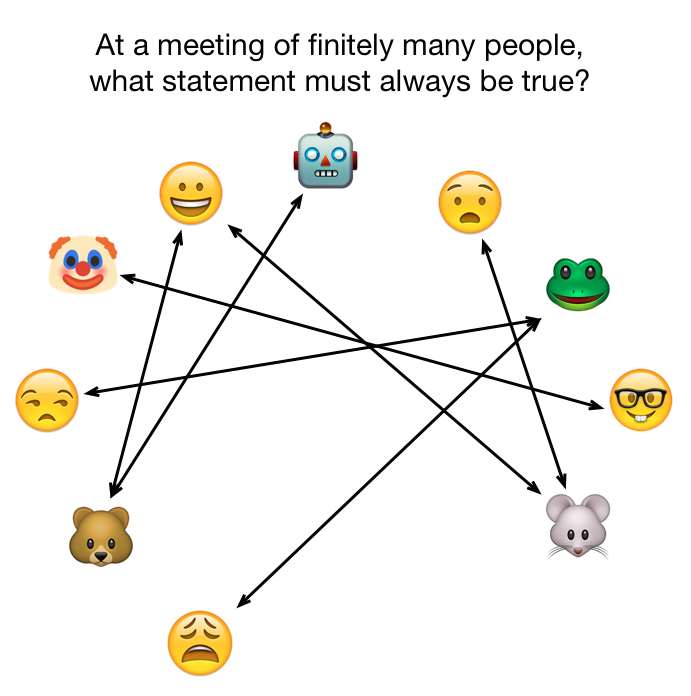An Old Chestnut
Probability
Level
3

At a meeting with a finite number of attendees, which of the following statements must be true?
An odd number of people shook hands an odd number of times.
An even number of people shook hands an even number of times
An odd number of people shook hands an even number of times.
An even number of people shook hands an odd number of times
This section requires Javascript.
You are seeing this because something didn't load right. We suggest you, (a) try
refreshing the page, (b) enabling javascript if it is disabled on your browser and,
finally, (c)
loading the
non-javascript version of this page
. We're sorry about the hassle.
If two people shake hands, let us say there has been two handshakes,(because both people have shaken hands once). With this understanding the total number of handshakes must be even.
Now imagine asking each attendee how many times they shook hands, and keep a record of the parity of the total. By parity I mean odd or evenness. Before you ask any questions your total is zero, so the parity is even. Since we know that the number of handshakes is even, the final parity must be even. So the parity must change an even number of times as you take your survey of all the attendees.The people who have shaken hands an even number of times do not change the parity and each person who has shaken hands an odd number of times will change the parity. So the number of persons who have shaken hands an odd number of times must be even!
It is fun to draw a graph with vertices representing people and edges representing handshakes. Trying to construct a graph with an odd number of odd vertices is a quick way to convince yourself of the correct answer.